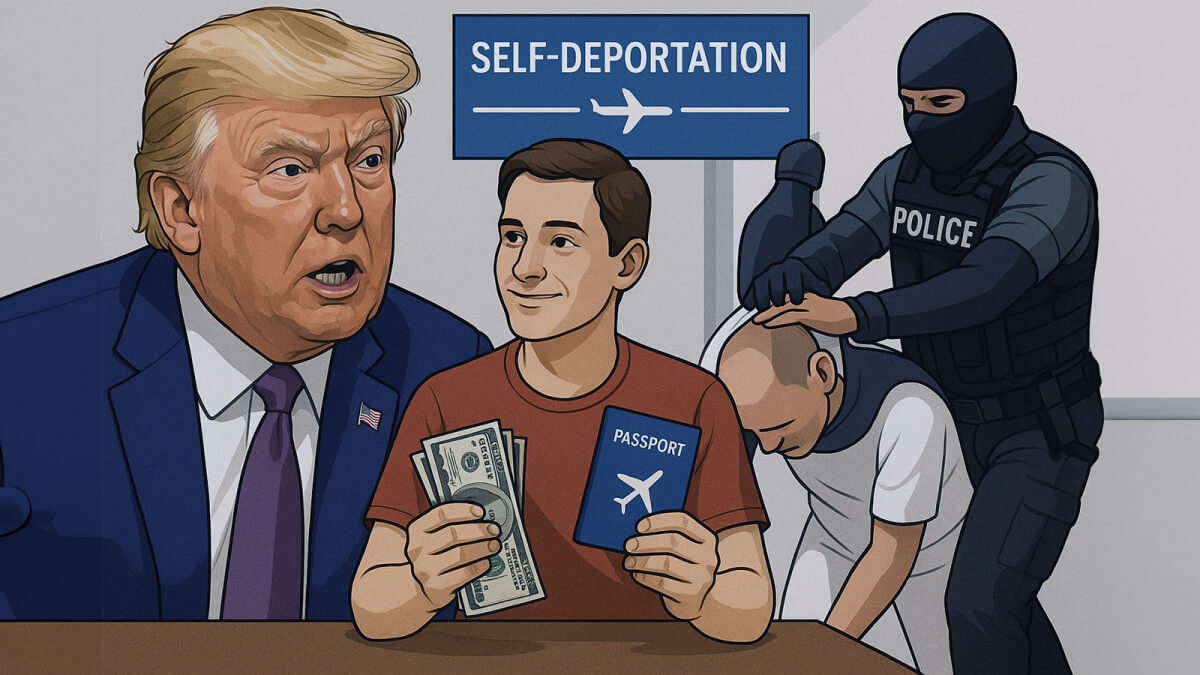President Donald Trump has introduced an innovative immigration policy aimed at addressing the complex issue of illegal immigration in the United States. During an interview with Rachel Campos-Duffy, who is married to Transportation Secretary Sean Duffy, Trump revealed a plan that offers financial incentives and airfare to migrants who voluntarily leave the country. Notably, this plan includes a pathway for certain individuals to return legally if they are deemed "good" by the administration.
"We’re doing a self-deportation and we’re going to make it comfortable for people," Trump stated. He emphasized the administration's willingness to assist those who wish to come back to the U.S. legally, stating, "And we're going to work with those people to come back into our country legally." This marks a departure from Trump's previous hardline stance on immigration, suggesting a strategic shift that balances economic needs with border security objectives.
Trump's initiative appears to be targeting a more nuanced enforcement strategy that prioritizes the removal of violent offenders and acknowledges the role of immigrant labor in certain industries. "We're focused right now on getting murderers out of the country," he said, indicating a selective approach that aims to eliminate criminal elements first. The President also addressed the concerns of industries dependent on immigrant workers, such as hospitality and agriculture, saying, "We want to help hotels and farms get the workers they need."
Despite the President's announcement, there were no concrete details provided regarding the implementation timelines or the specifics of the program. The plan's ambiguity leaves room for questions about feasibility and the criteria for determining eligibility for re-entry.
In a moment of empathy, when shown footage of a Mexican man with a long history in the U.S. and American-born children, Trump signaled an openness to allowing certain long-term residents to stay. "I look at this man. I say, this is a guy that we want to keep," he remarked, reflecting a more compassionate facet of his immigration policy.
The timing of this announcement is significant, coming amid controversies over the administration's deportation policies. A recent case involved Kilmar Abrego Garcia, a Salvadoran migrant deported due to what was described as an "administrative error." White House Press Secretary Karoline Leavitt condemned the media's portrayal of the incident, contrasting it with the case of Rachel Morin, an American mother murdered by an illegal immigrant.
Leavitt's remarks underscore the administration's intent to prioritize the safety of American citizens over the interests of undocumented immigrants, particularly those with criminal affiliations. "President Trump and our administration will not rest until every single highly illegal alien is removed from our country," she declared.
The immigration debate remains a contentious issue in American society, and President Trump's latest proposal is sure to add a new dimension to the ongoing discourse. As the nation grapples with the realities of immigration reform, the administration's actions will be closely scrutinized for their impact on both human lives and the country's economic well-being.





